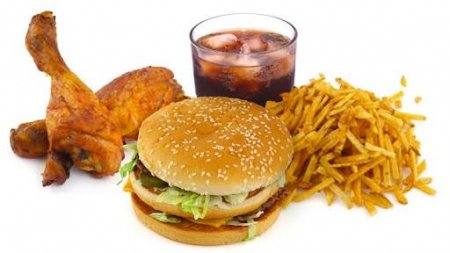P
PressRoom
Guest
High Cholesterol foods can induce both immediate effects and the long-term effects. While some fats are necessary for wellness, other should be limited. Below are some of the side effects of eating fatty foods.

1. Gas and bloating: Gas is an essential digestive operations or processes in the body. Excessive gas can cause a frequent emptiness of the stomach or lead to abdominal pains. Fatty foods enhance gas and bloating more leading to passing of gas or belching often times. Deep-fried fatty foods such as french fries, and processed meats such as bacon and sausage, also contain rich amounts of sodium, which can further exacerbate gas and bloating.
2. Acid Reflux and Heartburn: Fatty foods contribute to acid reflux and heartburn. Acid reflux occurs when the stomach acid regurgitates back into the esophagus, leading to a bitter aftertaste, difficulty in swallowing, nausea and/or heartburn.
3. Easy Exposure to Heart problems: Fatty foods contain excessive fats - saturated fats and trans fats which could easily lead to poor functioning of the heart. Poor functioning of the heart results in cardiac arrest and high blood pressure. Foods rich in saturated fat and cholesterol include beef, beef fat, lamb, veal, organ meats, poultry fat, whole milk, butter, cream and egg yolks. Processed foods such as commercially prepared cookies, cakes, chips, crackers and fast food, are major contributors of trans fats.
4. Decline In The functioning of the Brain: A high-fat diet can stimulate insulin resistance, which means the body becomes less efficient at using the glucose, or blood sugar, so important to brain function.
5. Inability to Perform Exercise: Exercise is a good way of burning calories. Fatty foods appear to have a short-term effect on exercise performance because the body reacts to high fat content in the blood by releasing certain proteins that essentially make the metabolism less efficient as the human muscles become less efficient at using oxygen and fuel to make the energy needed to run.
PS: This information put together as a guide are culled from health-related articles on websites, journals, and videos. It is best you seek specified guidance from a health care professional.

1. Gas and bloating: Gas is an essential digestive operations or processes in the body. Excessive gas can cause a frequent emptiness of the stomach or lead to abdominal pains. Fatty foods enhance gas and bloating more leading to passing of gas or belching often times. Deep-fried fatty foods such as french fries, and processed meats such as bacon and sausage, also contain rich amounts of sodium, which can further exacerbate gas and bloating.
2. Acid Reflux and Heartburn: Fatty foods contribute to acid reflux and heartburn. Acid reflux occurs when the stomach acid regurgitates back into the esophagus, leading to a bitter aftertaste, difficulty in swallowing, nausea and/or heartburn.
3. Easy Exposure to Heart problems: Fatty foods contain excessive fats - saturated fats and trans fats which could easily lead to poor functioning of the heart. Poor functioning of the heart results in cardiac arrest and high blood pressure. Foods rich in saturated fat and cholesterol include beef, beef fat, lamb, veal, organ meats, poultry fat, whole milk, butter, cream and egg yolks. Processed foods such as commercially prepared cookies, cakes, chips, crackers and fast food, are major contributors of trans fats.
4. Decline In The functioning of the Brain: A high-fat diet can stimulate insulin resistance, which means the body becomes less efficient at using the glucose, or blood sugar, so important to brain function.
5. Inability to Perform Exercise: Exercise is a good way of burning calories. Fatty foods appear to have a short-term effect on exercise performance because the body reacts to high fat content in the blood by releasing certain proteins that essentially make the metabolism less efficient as the human muscles become less efficient at using oxygen and fuel to make the energy needed to run.
PS: This information put together as a guide are culled from health-related articles on websites, journals, and videos. It is best you seek specified guidance from a health care professional.


